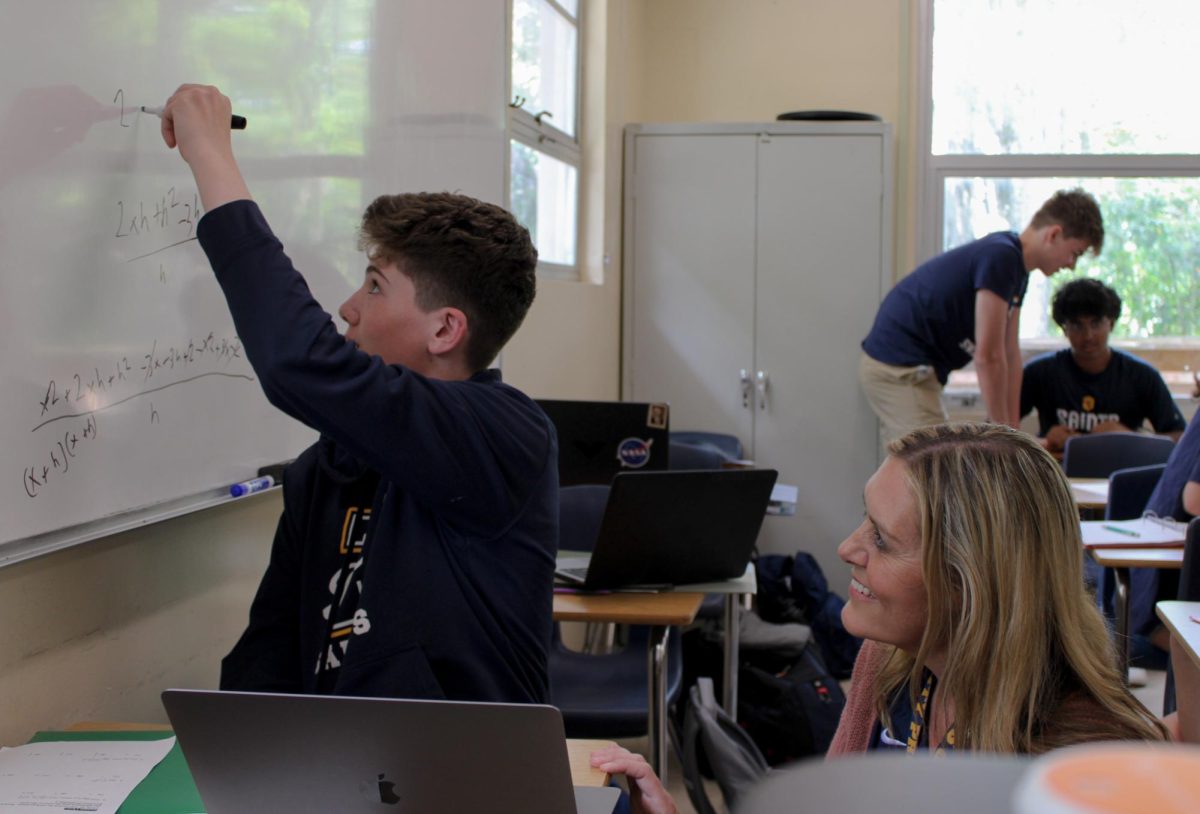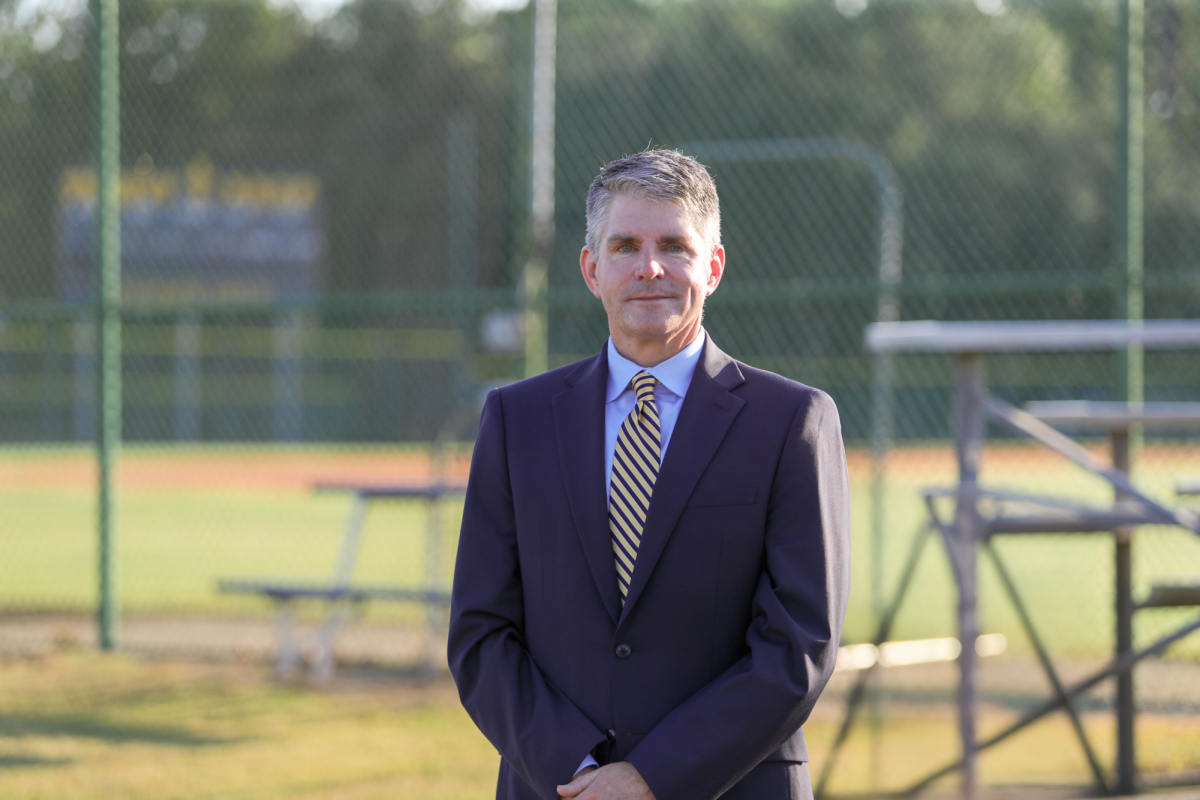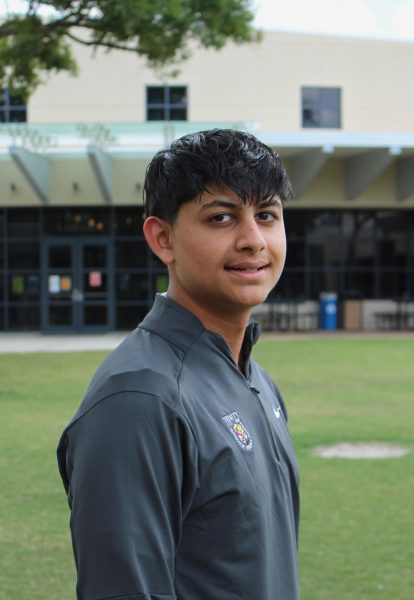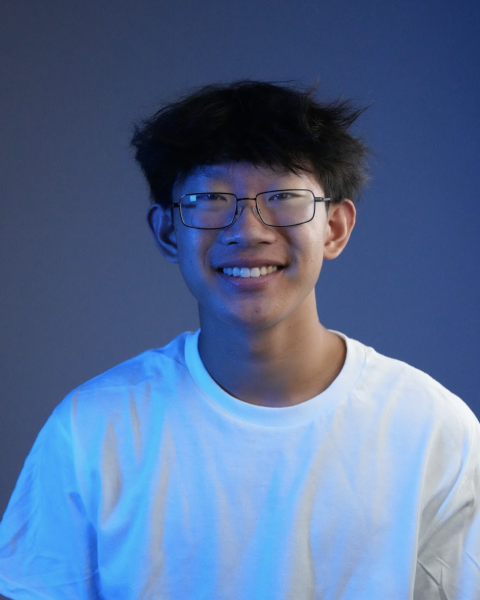On July 11, Trinity announced its plan to create an environment where students complete their work on time, socialize during breaks and increase their attention spans year after year. They aimed to accomplish this through the new cell phone policy requiring students in grades 6-9 to give their smartphones to their advisors for the entirety of the school day.
According to a Stockton University report from 2019, cell phones produce both positive and negative impacts in an educational environment. Although they help students engage in classroom activities and make information more readily accessible, phones may also interfere with students’ focus, cognitive abilities, and attention spans through social media and messaging apps.
Due to a recent Florida law enacted in May of 2023 prohibiting cell phone use during class, Orange County Public Schools (OCPS) have also terminated smartphone use.
As an independent school, Trinity does not have to follow this state law. However, Head of Middle School Dr. Stephanie Dryden said her research led the administration to follow suit.
“As a school, we’re always tapping into current trends in education and trying to keep our fingers on the pulse of that world,” Dryden said. “We’re regularly reflecting on what [we] are doing, why [we] are doing it, [and] how [we] can be better.”
Dryden and her colleagues have been frequently observing this policy’s overall effectiveness and noting its glaring advantages.
“We’re seeing more strong social interactions,” Dryden said. “Teachers are reporting that the classes are going well. Not having that distraction has been helpful.”
This distraction-free environment filled with interactions is an atmosphere the administration and teachers have been trying to achieve for years.
“[This policy is] all about how we are trying to create an environment for learning and an environment that minimizes negative distractions and encourages engagement with peers, with teachers [and] with material in the classroom,” Dryden said.
Teachers and parents have also been noting the improvements brought by this policy. Assistant Upper School Dean and English teacher Steven Garnett, as both a father and educator, recognizes the significant distractions smartphones cause.
“The new cell phone policy … is 100% satisfactory to me,” Garnett said. “As a parent, I saw firsthand the distractions that phones could be outside of the classroom and during the school day.”
AP Psychology teacher Michael Brown notes how, from a psychological perspective, the policy has already increased student communication levels.
“Humans have not evolved to handle the addiction machines that are our screens, and so we succumb to that addiction very rapidly,” Brown said. “I love the idea of removing it and forcing [students] to interact with other humans rather than a screen.”
In the past during the 2023 – 2024 school year, Brown allowed students to keep their phones with them during the class period. However, he noticed that this negatively impacted the students’ overall focus and concentration.
Brown thinks of cell phones as a barrier to social interaction between students. However, he also believes students can circumvent the policy using other devices.
“We just took away a speed bump to interacting with others, [but] it might not force it to happen,” Brown said. “They could be on their laptop [or] they could bring a switch in their backpack. There [are] so many other options, but we just removed a [barrier] here.”
Eighth-grader Liem Murphy has beliefs similar to Brown’s, in which he has seen the obstructive effects of devices firsthand.
“I think that [the policy] helps with kids who are more prone to playing video games or just sitting by themselves at break,” Murphy said. “It forces them to make friends … [and] develop better social skills and talk to other people during breaks.”
Murphy, however, also feels that this policy may partially be a burden. He states how factors such as communication may be drastically affected due to this policy.
“The messaging app is really important for me because, if my parents are late or early to pick me up from practices or school, it helps communicate,” Murphy said.
However, Dryden believes this is simply a short adjustment period in which students and parents are getting used to the new policy.
“I don’t really think that the end of the day pickup is a downside to the policy,” Dryden said. “I think it’s just an adjustment period. Quite honestly, you could have that problem even if people do have phones.”
Garnett is excited to discover the new opportunities this policy will create for both the students and the faculty and hopes it will improve Trinity’s overall educational experience.
“At 2:55, [students] have their phones and they can catch up with their friends and go do the things they want to do,” Garnett said. “But for roughly seven hours, hopefully, they did better schoolwork.”
















